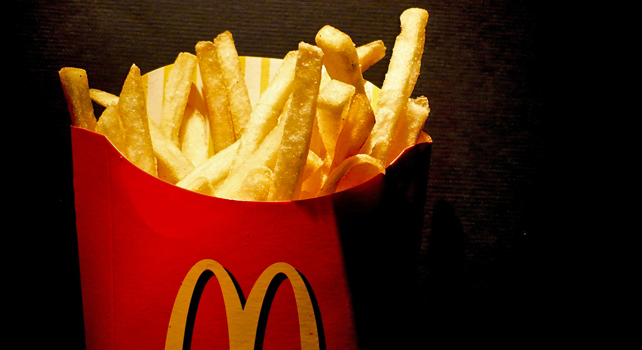If you get between a Brit and his chips, your brand may ultimately suffer.

Never get between an Englishman and his chips.
McDonald’s is spending a lot of money at the Olympics (around $100 million) for an exclusive sponsorship deal and the right to tell the other 800 caterers on the Olympics grounds that they can’t sell "chips" (that's French fries to you Yankees) during the Games. The only nod to British eating habits and national pride is to allow these caterers to sell traditional fish and chips (and, no, people won’t be allowed to order fish and chips, hold the haddock).
Why would McDonald’s expect that this would not cause the furor that it has, in fact, caused? “McDonald’s has turned the London Summer Olympics into a no-fry zone,” “’Chipgate’ scandal rocks Olympics,” were just two of the headlines. Sebastian Payne, writing in the Spectator, labeled the Games as the “Censorship Olympics.” He said that the “Soviet-style roadlanes are bad enough, but the right to sell a bag of chips to anyone who wants one is fairly fundamental.”
McDonald’s is not the only company flexing its corporate sponsorship rights. Visa has been accused of cashing in by replacing ATMs with many fewer machines that only accept its cards. Although Visa has always used its Olympics deal as part of its long-running “only card accepted” campaign, this move is upping the ante. To protect Heineken’s sponsorship, all other drinks will be sold unbranded--you won’t be able to order a Guinness at the Games--you’ll have to order a pint of stout.
The Olympics organizing committee (IOC) has recruited hundreds of uniformed Olympics officers tasked with roaming the streets of Britain looking for any use of Olympic brand equities not officially sanctioned. This is not just the unauthorized use of the Olympic rings but also the use of banned words like “gold”, “summer” and “London” if they are construed to connect to the games. Under legislation passed by the government, these “brand police” have the right to enter shops and offices and levy heavy fines against violators. Grandmothers giving dolls to church donations, florists in Stoke-on-Trent, lingerie shops in Leicester and butchers in Dorset have all been swept up in this dragnet.
Over the years, the IOC and its global sponsors have been frustrated by ambush marketers who have been extremely creative in finding ways to associate with the Olympics without paying for the privilege. Nike, American Express, and Pepsi have all successfully played this ambushing game and the IOC has responded by tightening the rules and enforcing its rights.
But this escalating battle between sponsors and their ambush-minded competitors is now officially out of control. Sponsors have become so focused on stopping ambushes that they’ve forgotten about the people living in the country hosting the games. They are just collateral damage in this epic battle. As Tom Chivers in The Telegraph said, this is the moment when “corporate sponsorship lost its mind.”
It’s gone too far. People don’t like monopolies and they don’t like bullies. The IOC and its sponsors, blinded by the battle with their ambushing enemies, are acting like both. They need to back off and think about things from the public’s (their consumer’s) perspective.
Otherwise, the money they are spending will not generate the goodwill it is intended to. And that would be a waste of the almost one billion dollars they are spending.
[Image: Flick user Alfonsina Blyde]